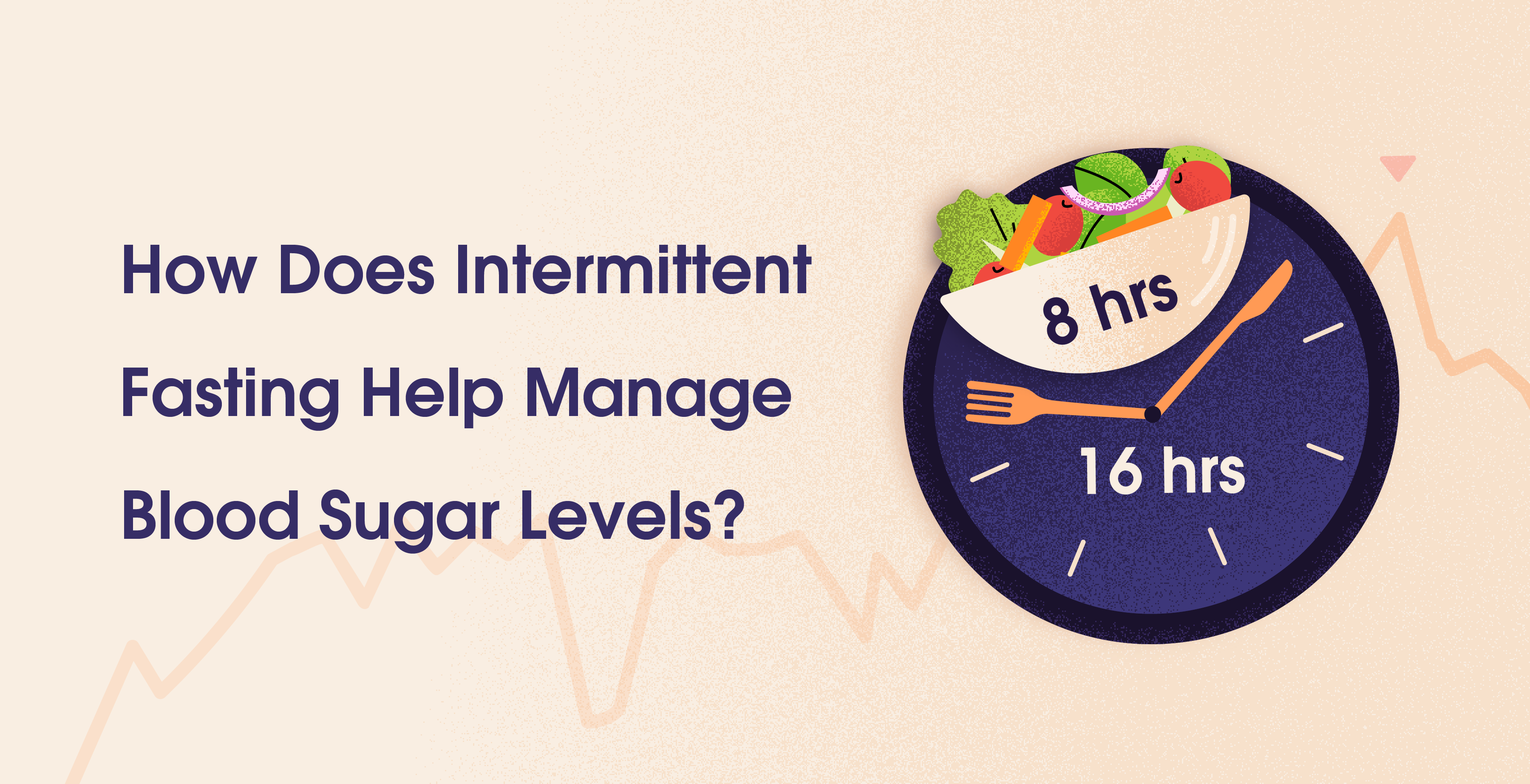Why Do People Have Different Glucose Reactions to the Same Meal?
Oct 2, 2024
Sayfali Rawlani
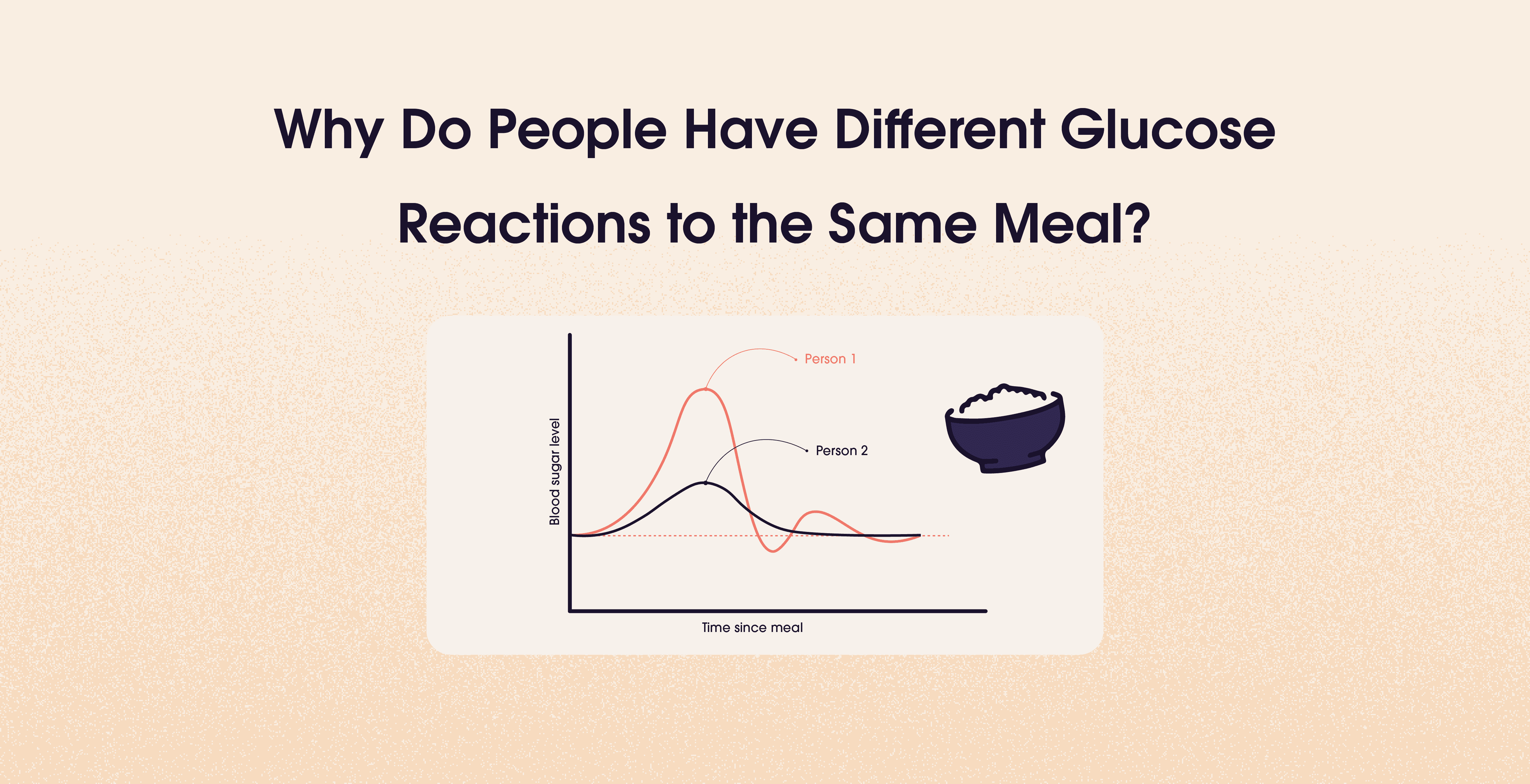


Table Of Contents
Have you ever sat down to eat the exact same meal as someone else, only to realize later that you both felt completely different afterward? Maybe you felt fine, but your friend experienced a blood sugar crash—or vice versa. It seems strange, right? Well, the truth is, even if we eat the same thing, our bodies don’t always react in the same way.
There are a few interesting reasons for this, so let’s dive into what’s going on behind the scenes.
Highlights
Everyone’s metabolism works at a different speed, influencing how quickly or slowly they break down food, leading to varying glucose responses.
Your unique gut bacteria affect how your body processes food, which can change how your blood sugar reacts after a meal.
Genetics play a role in how sensitive your body is to carbohydrates, causing different reactions to the same meal for different people.
Physical activity before or after a meal helps your body manage glucose better, preventing large blood sugar spikes.
Stress and lack of sleep can make your body less effective at handling glucose, leading to higher blood sugar spikes after the same meal.
How sensitive your body is to insulin affects how well it manages blood sugar after meals. Insulin resistance can cause higher glucose spikes.
Reasons Why People Have Different Glucose Reactions to The Same Meal
Everyone’s Metabolism is Different
We’ve all got our internal speedometers, our metabolism. This is how quickly or slowly your body digests food and turns it into energy. Some people have metabolisms that break down carbs fast, which can cause their blood sugar to rise quickly. Others might digest food slowly, which helps keep things steady. So, that slice of pizza you both ate? It’s not just about the food—it’s also about how fast your body is turning it into energy.
Your Gut is Full of Tiny Helpers
Inside your stomach and intestines, there’s an entire community of bacteria hard at work. It’s called your gut microbiome, and believe it or not, it has a huge impact on how your body handles food. Everyone’s microbiome is different, and some people’s bacteria are better at breaking down certain foods. For example, if your gut bacteria are great at processing fiber, you might have a lower blood sugar spike after a meal compared to someone who doesn’t have the same helpful bacteria.
Blame Your Genes (At Least a Little)
We inherit a lot from our parents—our eye color, our hair type, and yes, even how our bodies respond to certain foods. Your genetics play a role in how your body processes sugar. Some people are naturally more sensitive to carbohydrates, meaning their blood sugar spikes higher after eating. Others have genes that help them manage sugars more easily. So, even if you and your sibling both love eating pancakes, your glucose levels might look completely different afterward.
Exercise Helps Control the Spike
One thing that can really help keep your blood sugar in check is physical activity. After a good workout or even just a walk, your muscles are ready to soak up glucose and use it for energy. This can prevent those big sugar spikes that make you feel tired later. If you’re moving around a lot before eating, you’ll likely see a smaller blood sugar spike than someone who’s been sitting all day. That’s why you might feel better after a sweet treat if you’ve been active.
Don’t Underestimate Sleep and Stress
Believe it or not, your blood sugar can be influenced by how much sleep you get or how stressed you are. When you’re sleep-deprived, your body doesn’t process sugar as efficiently, leading to bigger spikes. Stress can have a similar effect—when you’re stressed out, your body releases hormones like cortisol, which can send your blood sugar soaring. So, if you’ve had a tough day or a bad night’s sleep, that sandwich you usually eat might affect you more than usual.
Insulin Sensitivity Plays a Big Role
Insulin is the hormone that helps manage your blood sugar levels. Some people’s bodies respond really well to insulin, while others have something called insulin resistance, where the body doesn’t react as effectively. If you’re more sensitive to insulin, your body will handle sugar more smoothly, but if you have resistance, you might see bigger blood sugar spikes after eating the same meal.
In a Nutshell...
There’s no one-size-fits-all answer when it comes to how your body responds to food. The same meal can cause completely different glucose responses in different people, depending on a variety of factors like your metabolism, gut bacteria, genetics, activity level, stress, sleep, and insulin sensitivity. Understanding these differences can help you make choices that work best for your body—and make sense of why your food sometimes seems to “hit” differently than someone else’s!
References
Have you ever sat down to eat the exact same meal as someone else, only to realize later that you both felt completely different afterward? Maybe you felt fine, but your friend experienced a blood sugar crash—or vice versa. It seems strange, right? Well, the truth is, even if we eat the same thing, our bodies don’t always react in the same way.
There are a few interesting reasons for this, so let’s dive into what’s going on behind the scenes.
Highlights
Everyone’s metabolism works at a different speed, influencing how quickly or slowly they break down food, leading to varying glucose responses.
Your unique gut bacteria affect how your body processes food, which can change how your blood sugar reacts after a meal.
Genetics play a role in how sensitive your body is to carbohydrates, causing different reactions to the same meal for different people.
Physical activity before or after a meal helps your body manage glucose better, preventing large blood sugar spikes.
Stress and lack of sleep can make your body less effective at handling glucose, leading to higher blood sugar spikes after the same meal.
How sensitive your body is to insulin affects how well it manages blood sugar after meals. Insulin resistance can cause higher glucose spikes.
Reasons Why People Have Different Glucose Reactions to The Same Meal
Everyone’s Metabolism is Different
We’ve all got our internal speedometers, our metabolism. This is how quickly or slowly your body digests food and turns it into energy. Some people have metabolisms that break down carbs fast, which can cause their blood sugar to rise quickly. Others might digest food slowly, which helps keep things steady. So, that slice of pizza you both ate? It’s not just about the food—it’s also about how fast your body is turning it into energy.
Your Gut is Full of Tiny Helpers
Inside your stomach and intestines, there’s an entire community of bacteria hard at work. It’s called your gut microbiome, and believe it or not, it has a huge impact on how your body handles food. Everyone’s microbiome is different, and some people’s bacteria are better at breaking down certain foods. For example, if your gut bacteria are great at processing fiber, you might have a lower blood sugar spike after a meal compared to someone who doesn’t have the same helpful bacteria.
Blame Your Genes (At Least a Little)
We inherit a lot from our parents—our eye color, our hair type, and yes, even how our bodies respond to certain foods. Your genetics play a role in how your body processes sugar. Some people are naturally more sensitive to carbohydrates, meaning their blood sugar spikes higher after eating. Others have genes that help them manage sugars more easily. So, even if you and your sibling both love eating pancakes, your glucose levels might look completely different afterward.
Exercise Helps Control the Spike
One thing that can really help keep your blood sugar in check is physical activity. After a good workout or even just a walk, your muscles are ready to soak up glucose and use it for energy. This can prevent those big sugar spikes that make you feel tired later. If you’re moving around a lot before eating, you’ll likely see a smaller blood sugar spike than someone who’s been sitting all day. That’s why you might feel better after a sweet treat if you’ve been active.
Don’t Underestimate Sleep and Stress
Believe it or not, your blood sugar can be influenced by how much sleep you get or how stressed you are. When you’re sleep-deprived, your body doesn’t process sugar as efficiently, leading to bigger spikes. Stress can have a similar effect—when you’re stressed out, your body releases hormones like cortisol, which can send your blood sugar soaring. So, if you’ve had a tough day or a bad night’s sleep, that sandwich you usually eat might affect you more than usual.
Insulin Sensitivity Plays a Big Role
Insulin is the hormone that helps manage your blood sugar levels. Some people’s bodies respond really well to insulin, while others have something called insulin resistance, where the body doesn’t react as effectively. If you’re more sensitive to insulin, your body will handle sugar more smoothly, but if you have resistance, you might see bigger blood sugar spikes after eating the same meal.
In a Nutshell...
There’s no one-size-fits-all answer when it comes to how your body responds to food. The same meal can cause completely different glucose responses in different people, depending on a variety of factors like your metabolism, gut bacteria, genetics, activity level, stress, sleep, and insulin sensitivity. Understanding these differences can help you make choices that work best for your body—and make sense of why your food sometimes seems to “hit” differently than someone else’s!
References
Table Of Contents
Table Of Contents
Table Of Contents
Read More
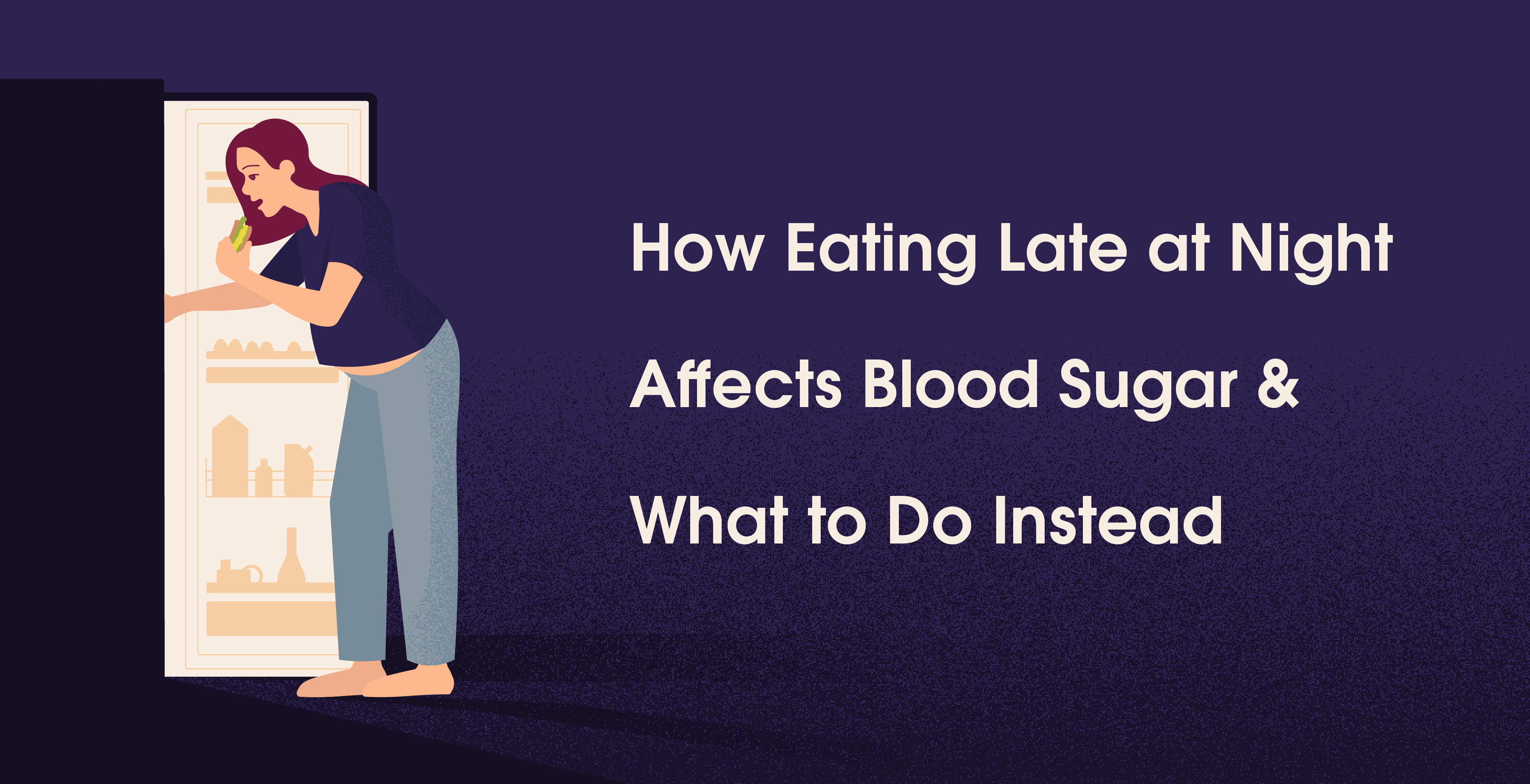

Mar 25, 2025
Sayfali Rawlani
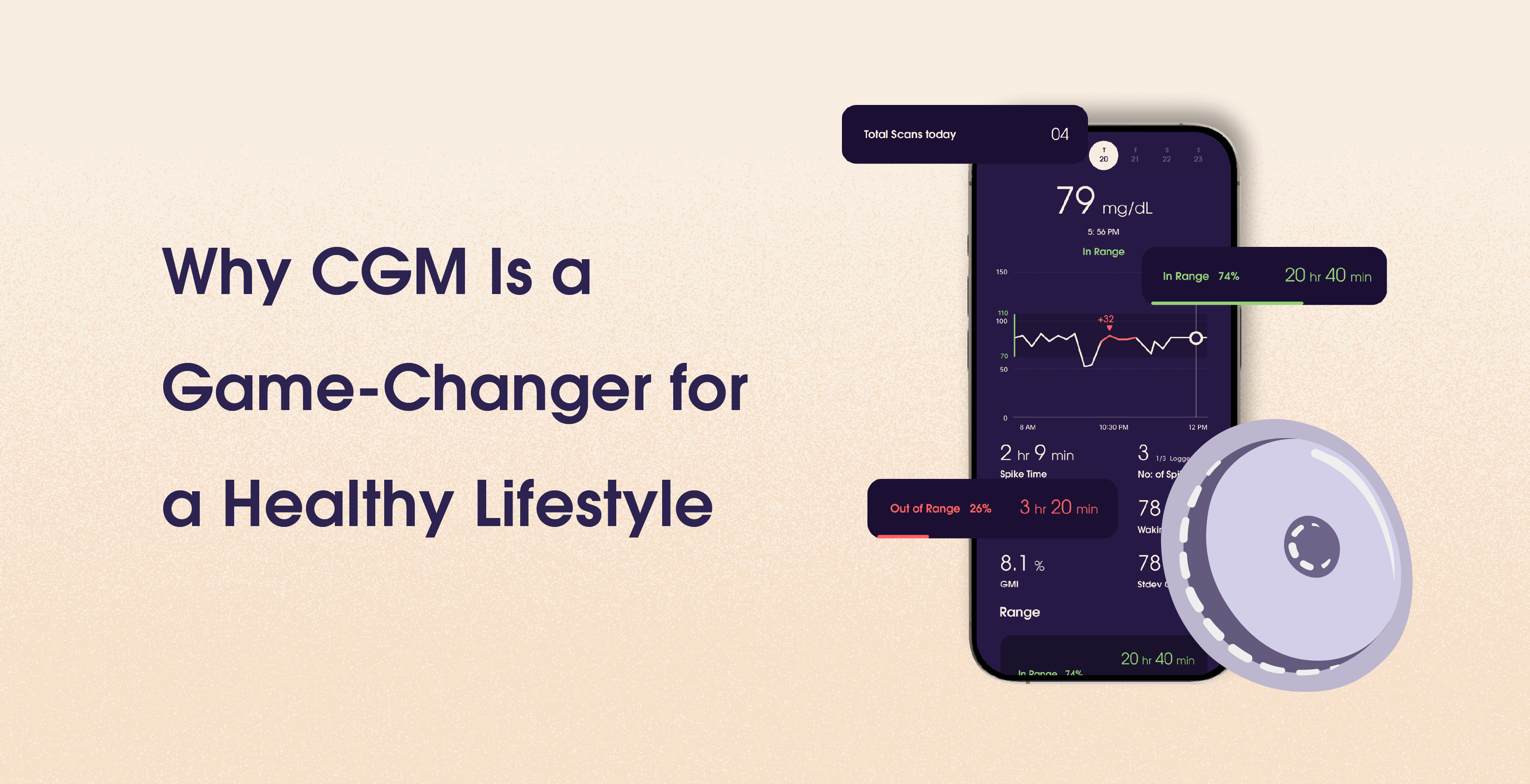

Mar 20, 2025
Sayfali Rawlani
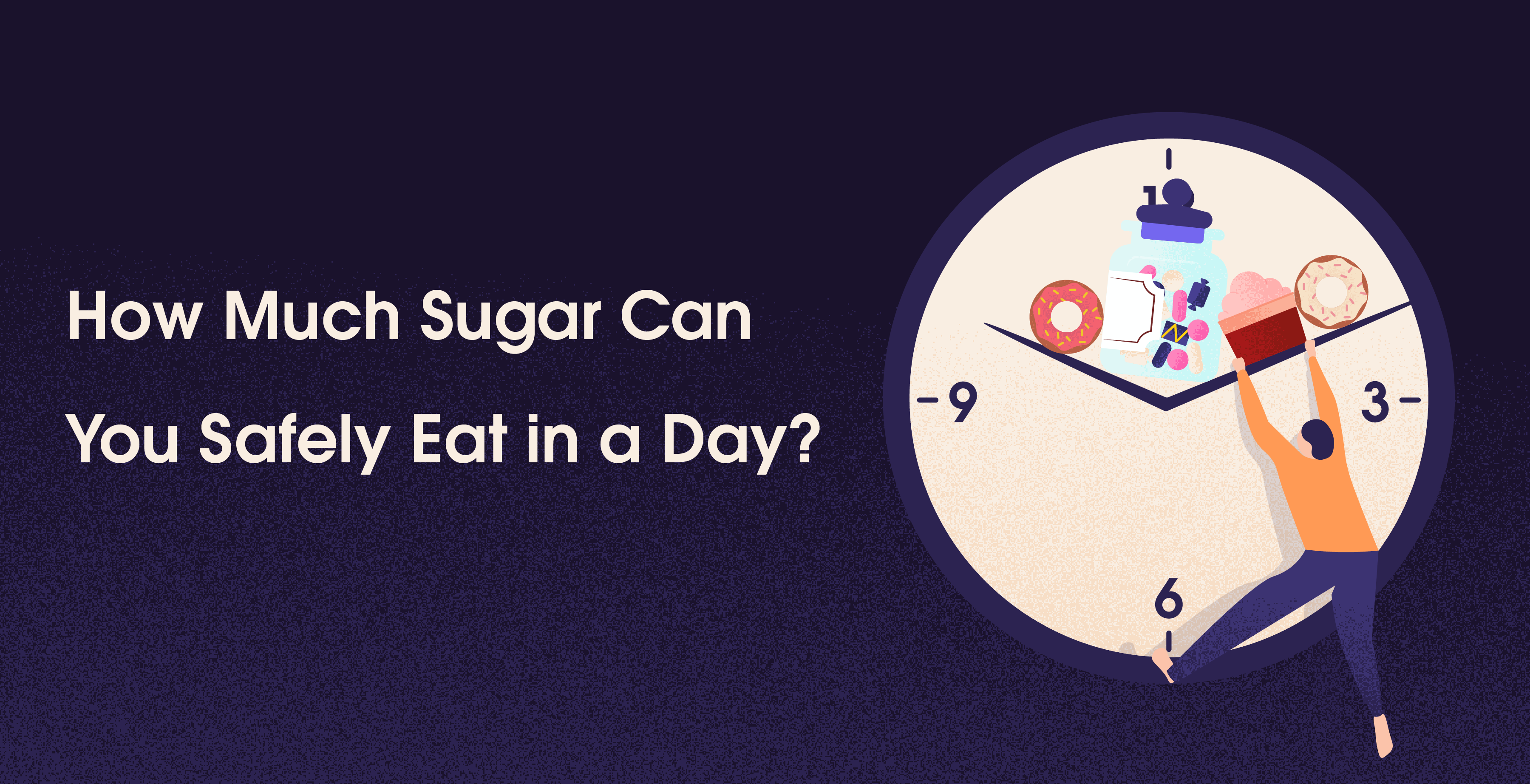

Mar 6, 2025
Sayfali Rawlani



Company
Copyright © 2025 trst health. All right reserved.

